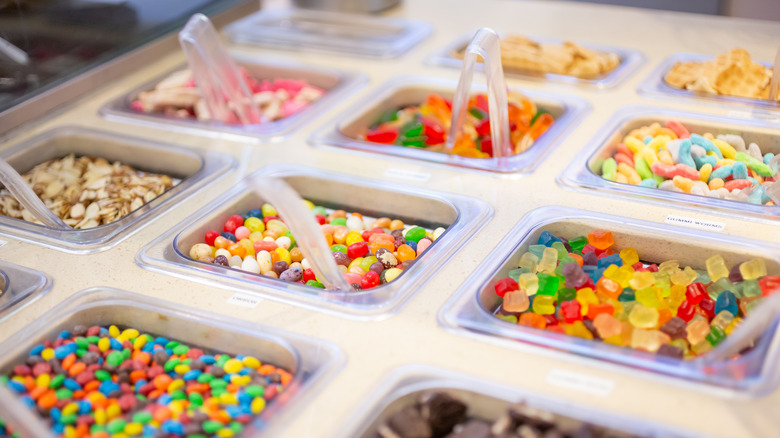Can You Really Get A 'Sugar Rush'?
If you have a sweet tooth, you may have been told that eating too much candy and baked goods can give you a sugar rush. While scientists once thought excessive sugar intake could cause hyperactivity, this notion has since been widely debunked as a myth. According to Medical News Today, a 2019 meta-analysis published in Neuroscience & Biobehavioral Reviews found that there is no evidence that acute sugar consumption increases alertness or hyperactive behavior.
Using data from 31 studies, researchers looked at the effects of sugar intake on mood. The findings revealed that there were no changes in mood within zero to 60 minutes after ingestion. If anything, the report established a connection between sugar consumption and decreased alertness. "We hope that our findings will go a long way to dispel the myth of the 'sugar rush' and inform public health policies to decrease sugar consumption," Elizabeth Maylor, a professor at the University of Warwick and one of the study's co-authors, told Medical News Today.
You can experience a 'sugar crash'
While there's no such thing as a sugar rush, it is possible to experience a sugar crash. A sugar crash is caused by a sudden drop in blood sugar levels and is most common among people with diabetes. According to Mental Floss, this is a condition known as reactive hypoglycemia, which occurs when an excess of sugar enters the bloodstream, causing blood sugar levels to become unstable and crash. If you're diabetic and your blood sugar levels get too low, you can experience a range of unpleasant symptoms, including fatigue, weakness, and shakiness.
However, this can also happen if you work out on an empty stomach. "If one exercises vigorously and doesn't have sufficient intake to supplement their use of calories, they can get lightheaded," Mark Wolraich, emeritus professor of pediatrics at the University of Oklahoma Health Sciences Center, told Mental Floss. "But in most cases, the body is good at regulating a person's needs."
Endocrinologist Dr. Natasa Janicic-Kahric told The Washington Post that only around 5% of Americans will experience a sugar crash in their lifetime.

